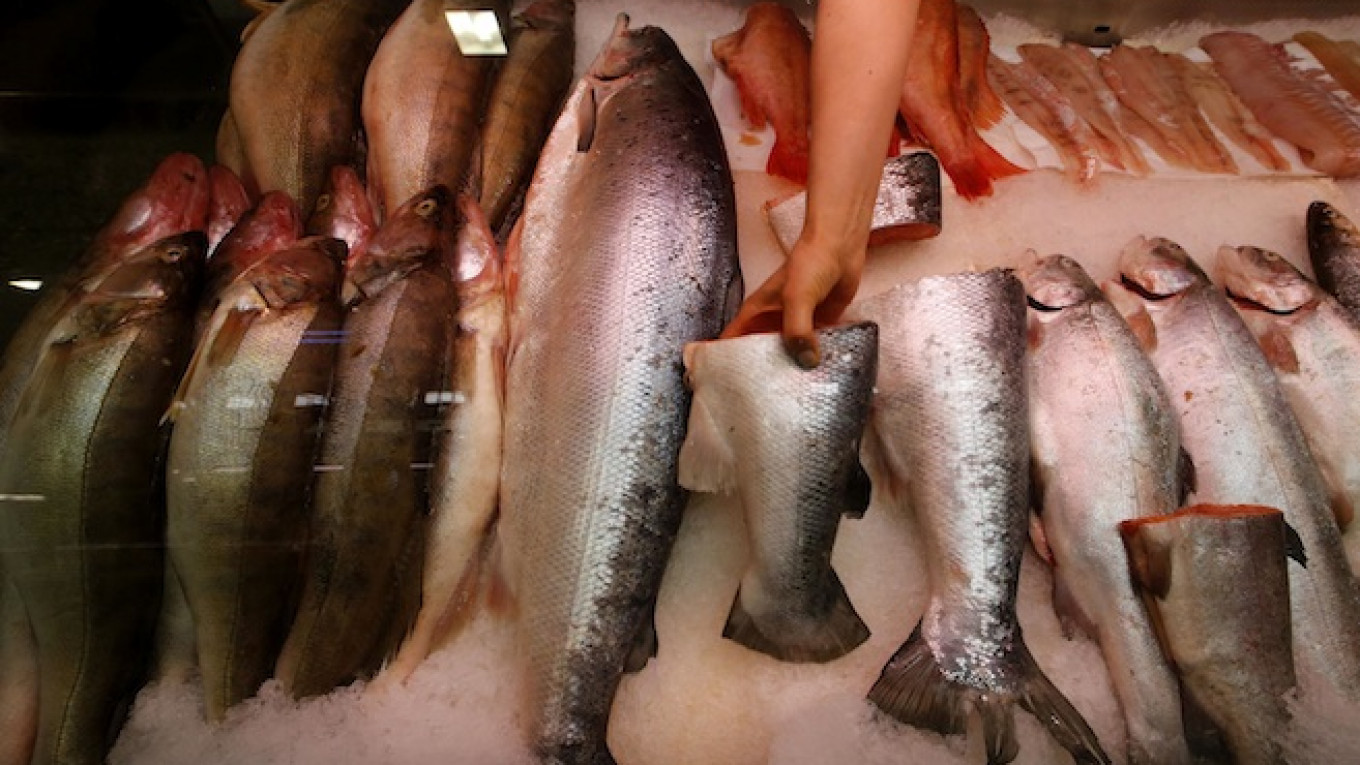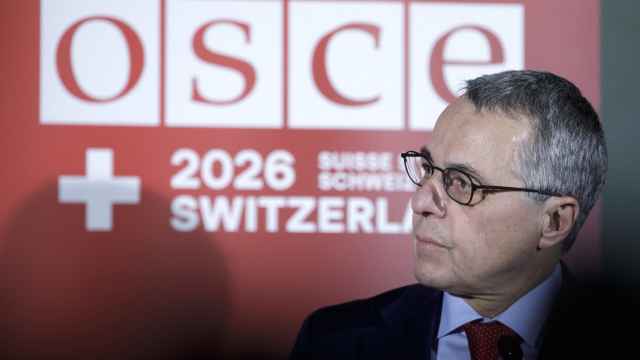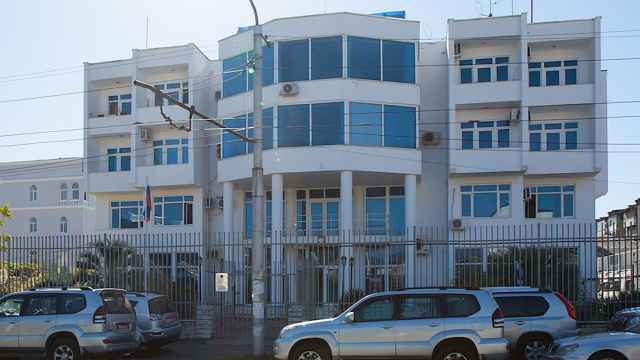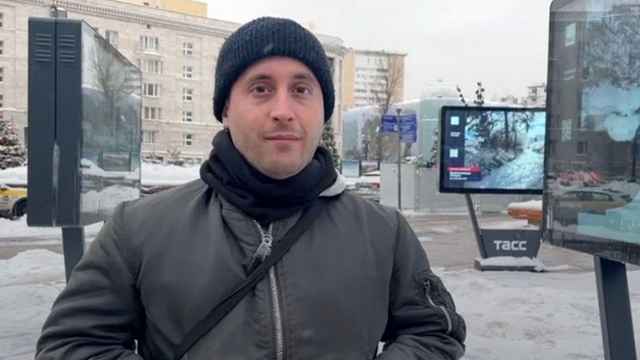Russia's government has eased some self-imposed bans on Western food, allowing imports of material that could be used to boost its own agricultural industry and softening the costs on some firms in neighbor Finland.
Earlier this month, Russia banned all meat, fish, dairy, fruit and vegetable imports from the U.S. the European Union, Norway, Canada and Australia for one year to retaliate again sanctions slapped on Moscow over the Ukraine crisis.
The tough bans isolated Russia from Western goods to levels unseen since Soviet Union times, while also leading to sharp price drops and financial problems at many European food companies, deprived of a large market.
On Wednesday, the Russian government said it would allow imports of hatchlings of salmon and trout as well as seed of potatoes and seed of onion, sugar maize hybrid for planting and peas for planting.
Russia has been importing up to 50 percent of fish from Norway and prices for salmon shot up steeply in Russia in recent days. The government said it would encourage imports of salmon from Chile and help develop its own fish farming.
On Wednesday, the government also said the bans would exclude lactose-free milk and products, biologically active supplements, vitamin-mineral complexes, flavor additives, protein concentrates of animal and plant origin and their mixtures, food fibers and food additives including complex ones.
Finland's dairy cooperative Valio, the company hardest hit by the bans in the country, said the decision on lactose-free milk products was good for the firm.
"This means a great deal to us as lactose-free products are very popular in Russia and stand for about 10 percent of our Russian exports," said spokeswoman Pia Kontunen.
Valio had earlier calculated its share of Finnish exports hit by Russia's original food sanctions was as much as 85 percent, or 240 million euros ($318 million)
See also:
Russia Bans Food Imports From U.S., EU, Australia, Canada, Norway
A Message from The Moscow Times:
Dear readers,
We are facing unprecedented challenges. Russia's Prosecutor General's Office has designated The Moscow Times as an "undesirable" organization, criminalizing our work and putting our staff at risk of prosecution. This follows our earlier unjust labeling as a "foreign agent."
These actions are direct attempts to silence independent journalism in Russia. The authorities claim our work "discredits the decisions of the Russian leadership." We see things differently: we strive to provide accurate, unbiased reporting on Russia.
We, the journalists of The Moscow Times, refuse to be silenced. But to continue our work, we need your help.
Your support, no matter how small, makes a world of difference. If you can, please support us monthly starting from just $2. It's quick to set up, and every contribution makes a significant impact.
By supporting The Moscow Times, you're defending open, independent journalism in the face of repression. Thank you for standing with us.
Remind me later.






